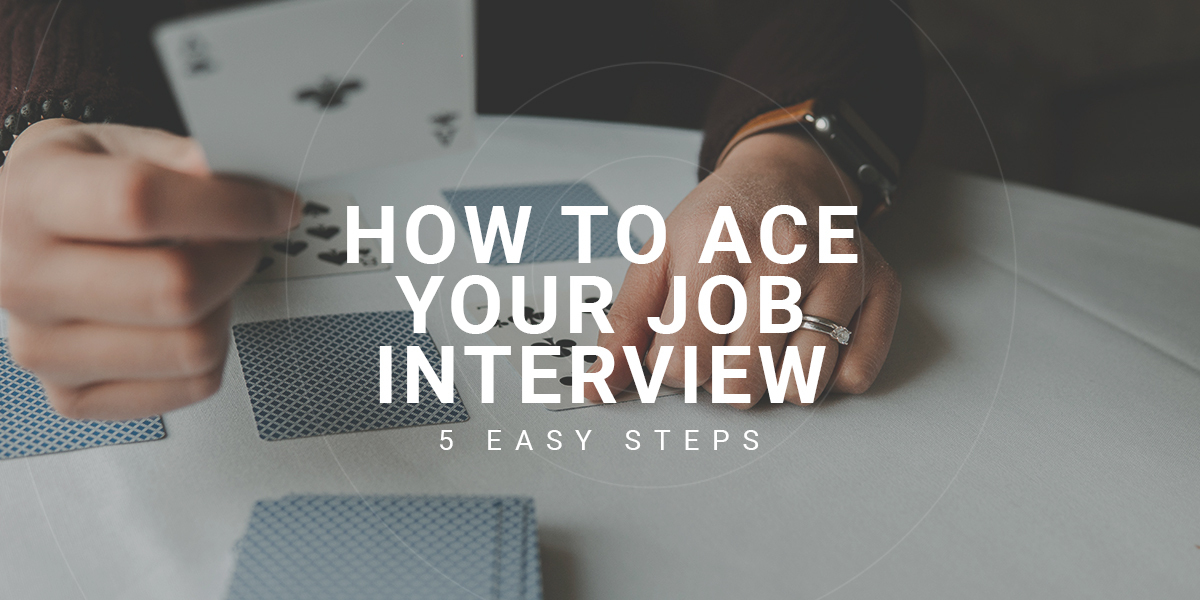
First of all, if you’ve successfully been selected for a job interview, congratulations. You’ve done the hard work, now we’re here to make sure you see it through until the end.
The Hunterskill Recruitment Get Started series is intended to provide job seekers and early recruiters with the tools to sell themselves effectively within their industry. Hunterskill has spent 20 years perfecting its strategy by listening to the needs of our clients and candidates. Help us to help you by listening to advice and top tips from our consultants to get you on the job ladder as soon as possible.
In this edition of Get Started, we’re breaking down all you need to know to prepare for job interviews.
You’ve Put The Work In
In the vast majority of cases, the questions you’ll be asked in a job interview will be looking for the same answers you wrote for your personal statement or cover letter. They’ll be based on the job specification, and since you’ve made it to interview, it’s fair to assume you’ve read it. If you haven’t, you absolutely must read the personal specification before your interview.
Re-read your application statement and bullet point where you address the spec. Spend time committing this list to memory – in the interview, you’ll always have a series of points you can respond with that you know match their criteria.
Typically, an interview question will be in one of two formats. The interviewer will be asking you to describe an occasion where you demonstrated a particular skill or asking you to explain what you learned from your previous experience. Luckily for you, both types of question can be answered very similarly and the best answers will include both a skill and what you learned.
For example, the interviewer says: “Tell us about a time when you think you showed excellent team work skills.”
Your response can begin with context – tell them what you think makes for good team work. This gives you time to formulate your response and helps you focus in on the specific skill. Then move into an example. Tell them what the job was and the role you played. Explain how you worked as a team and finish with a statement about what you learned. If you’re struggling to summarise what you learned, refer back to the context. This will make your answer hit all the criteria and sound like a thought through response.
Note: This is not the only way to answer a question. Follow the flow of conversation and use this method where appropriate. An interview is a conversation, not a test paper.
Take Your Time
The main reason interviews get derailed is nerves. It’s important to remember you can take as long as you need to answer questions. That doesn’t mean we advise you sit there staring blankly until it gets awkward. Be engaging – react to what they say. Throw in a smile. You can buy more time easily this way. If their question makes you have to think harder, tell them it’s an interesting question and pause for thought.
Top Tip - Don't be afraid of surprise questions. Interviewers often throw in curve balls to see how you react, so stay calm.
Be Confident
Nerves can be helpful, if kept in check. Remember that you won’t have gotten the chance to interview if they didn’t think you had potential.
To fight off the anxiety most people feel before an interview, create your own confidence. It’s easier than you think. The simplest way to find confidence is to know what you’re talking about. If you’re reading this, you’re already off to a good start. Read advice sites and do your research on the company. Find out what their goals are and where your role would fit in. Make notes on your past experience so that you’re not relying on long-term memory in the moment.
Top Tip - Test whether your preparation will hold up under pressure by doing at least a few mock interviews.
Ask Questions
At the end of most interviews, you will have the opportunity to ask the interviewers any questions you have. Use this time to demonstrate your knowledge of the company. Choose areas of their work that genuinely interest you and ask a follow up question if their reply offers one.
Feedback
You might not get the job. Rejection is an unpleasant feeling, but during a job hunt you need to learn to use any rejections to your advantage.
Ask the employer for feedback on your performance. Focus on the positives as well as the negatives – getting through to interview is a genuine achievement. Each one will only ever improve your performance until you ultimately succeed in your goal. You will succeed. Always remember that.
Get started, and good luck.